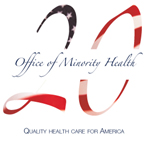Since employers are big buyers of health care on behalf of their employees, the NBGH wants businesses to use their buying power to improve the quality of care for everyone, since the Bureau of Labor Statistics predicts that 41.5% of the workforce will be members of racial and ethnic minority groups within the decade.
On Feb. 11 at the National Press Club in Washington, D.C., NBGH and OMH announced a new two-year effort to strengthen ongoing partnerships and build new business-community coalitions to reduce racial and ethnic health disparities and improve the quality of health care for minority populations.
Helen Darling, president of NBGH, called on employers to seek new strategies for getting maximum value for their health insurance dollars by focusing on providers and strategies that will help reduce health disparities affecting minority employees.
"Most employers would be dismayed to learn that while their contribution is equal, the care is not," Darling said. "It's no longer enough to provide the same benefits and hope everything works out."
Dr. Garth Graham, deputy assistant secretary for minority health, stressed the expectations the partnership has created.
"We believe NBGH will develop a set of tools that will be highly useful to business, and encourage top-level executives to commit to helping their companies work successfully on disparities issues," Dr. Graham said.
Speaking in support of the business group initiative was Dr. Ronald M. Davis, president of the American Medical Association and co-chair of the Commission to End Health Care Disparities.
Drawing distinctions between health status and health care, Dr. Davis identified disparities in health care as issues for which physicians should be accountable, saying "When there are disparities in health care, we cannot point to anyone else." He described progress toward the Commission's strategic objectives  and said that physicians' groups are "working hard to end this disease of social injustice."
and said that physicians' groups are "working hard to end this disease of social injustice."
The session was moderated by Dr. Anne Beal, assistant vice president of The Commonwealth Fund, who discussed how a focus on health care quality improvement is essential to elimination of disparities facing minorities and the underserved.


